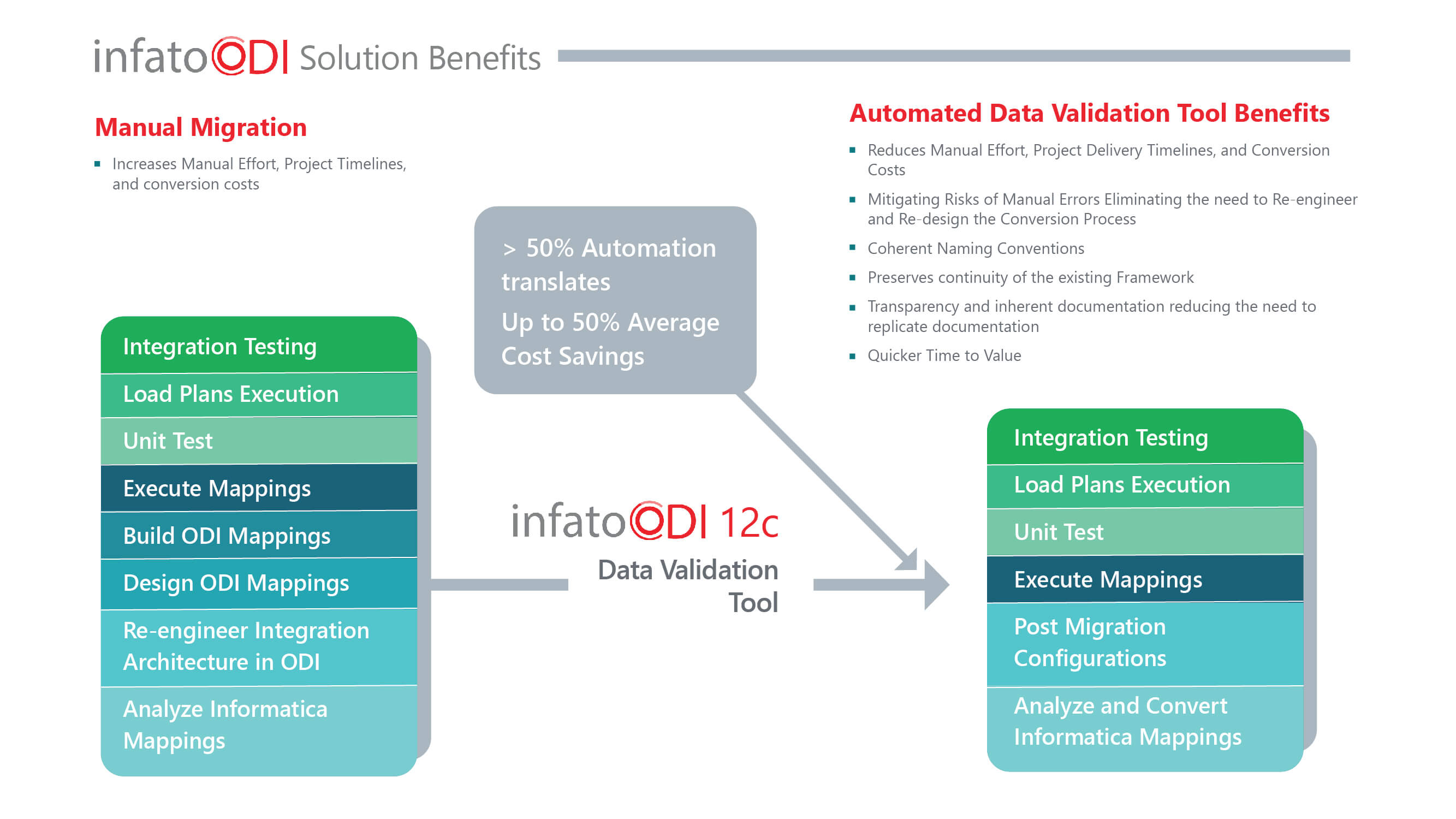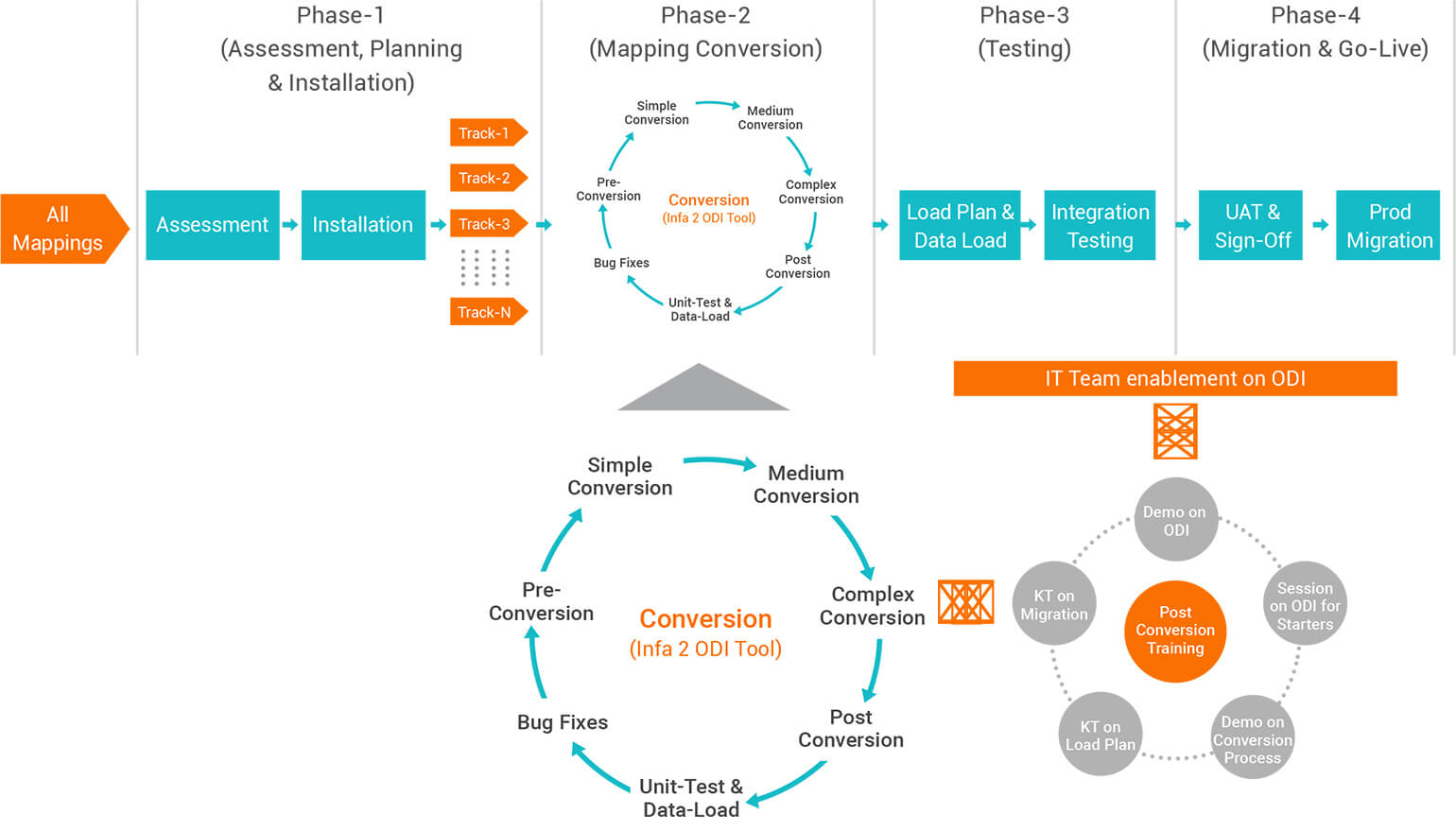How to Choose a Viable Data Management Tool for your Organization
According to the International Data Corporation (IDC), the purpose of data integration is to ensure the consistency of information where there is a logical overlap of information contents of two or more discrete systems. "To achieve a total solution within modern IT environments that are inclusive of relational, non-relational, and semi-structured data repositories — on-premises and in the cloud — data integration software employs a wide range of technologies. These include, but are not limited to, data connectivity extract, transform, and load (also known as ELT), change data capture (CDC), format and semantic mediation data federation and virtualization, data quality and profiling, master data management, metadata management and self-service data preparation and integration technologies.” - IDC
The best way to choose a viable data integrator tool for your organization is not by looking at its features but by evaluating how it suits your business needs. Some of the key things to analyze are:
Organization: Company revenues, the business model, number of applications, number of employees, employees with data management and data integration skills.
Applications: How many applications do your organization use? Is there an interchange of information between two applications such as SharePoint and Salesforce? What is the monthly flow of data? Are there both external and internal flow of data? Percentage of structured, semi-structured and unstructured data?
Data Use: Are you looking for Master Data Management (MDM)? Do you want to consolidate the data for easy reference? Are you planning to move to the cloud and require easy flow of data between systems? You want to derive some actionable insights from unstructured data and improve the decision-making process?
The market is driven by the two most widely used data integration tools Informatica and Oracle Data Integrator (ODI). Many organizations that primarily use Informatica are moving to ODI. This shift from Informatica to ODI is noteworthy as the ODI applies an innovative ELT (Extract, Load and Transform) methodology and leverages Oracle database for loading and transforming data, thereby eliminating the need to have a standalone ELT server center. ODI is extremely helpful for large enterprises that have intricate and multiple data integration needs. It also addresses the data management and data integration concerns of SMBs and does not require the use any other Oracle products. ODI is compatible with Oracle GoldenGate, Oracle Fusion Middleware, Oracle Database, Oracle Enterprise Data Quality, Exadata and Oracle Big Data Appliance and others.
The latest version of ODI works well with Big Data technologies by including standards that are compatible with Hadoop. It also supports Sparks Streaming facilitating Big Data configuration without writing a single code. ELT provides a flexible architecture for optimized performance.
The Benefits ELT Methodology:
Accelerated Analytics
The Jade Global InfatoODI tool significantly reduces your design and development time, leads to faster implementation, accelerates productivity and de-risks the process of data migration. The tool converts Infa mappings to ODI packages, supports single or bulk Infa mapping conversion, saves significant analysis effort and provides error handling capabilities. One of Jade Global’s clients experienced over 90 percent improvement in quality using Jade Global’s InfatoODI migration tool. Below you can see how manual versus automated data validation using InfatoODI can lead to significant cost savings and reduce manual effort, project delivery timelines, and conversion costs:

Here is a Case Study of one of Jade Global's customers, Willis Towers Watson:
London-based Willis Group Holdings PLC and Arlington based Towers Watson merged to form Willis Towers Watson in the year 2016. The merger required flow of enormous amount of data onto the Towers Watson Oracle EBS system. After initial investigation, the companies discovered that their OBI application required an upgrade. A detailed assessment by their internal IT team highlighted that it would require at least 13 months to achieve the desired upgrade. Using Jade Global's Informatica to Oracle Data Integrator conversion tool (InfatoODI) accelerated the migration process, reduced the implementation time and increased the speed of project execution by 63%. Jade’s Global Delivery Model (GDM) ensured on-time project delivery as part of a Fixed Price engagement. Here is what Tommy Walter, Director, Enterprise Reporting, Willis Towers Watson had to say:
“Essential to the success of the project has been the speed and quality of the ETL conversion work, and Jade Global rapidly put governance processes in place to provide us with the visibility and confidence as the project progressed. Where we have hit inevitable issues, Jade Global has quickly applied additional resources to ensure we stick to schedule”
Would you like to know how Jade Global achieved this feat? Read the complete success story here.
Jade Global’s InfatoODI tool provides leverages ODI’s Public SDKs and APIs, moves applications from INFA 8/9.x to ODI 11g/12c, uses a desktop file to launch the tool and supports cloud, facilitates user-friendly dashboards. Below is an overview of the tool:

For a deeper understanding on upgrading BI Apps and migrating data from Informatica to ODI, read this read this blog.
Original blog source: https://www.jadeglobal.com/blog/how-choose-viable-data-management-tool-your-organization
The best way to choose a viable data integrator tool for your organization is not by looking at its features but by evaluating how it suits your business needs. Some of the key things to analyze are:
Organization: Company revenues, the business model, number of applications, number of employees, employees with data management and data integration skills.
Applications: How many applications do your organization use? Is there an interchange of information between two applications such as SharePoint and Salesforce? What is the monthly flow of data? Are there both external and internal flow of data? Percentage of structured, semi-structured and unstructured data?
Data Use: Are you looking for Master Data Management (MDM)? Do you want to consolidate the data for easy reference? Are you planning to move to the cloud and require easy flow of data between systems? You want to derive some actionable insights from unstructured data and improve the decision-making process?
The market is driven by the two most widely used data integration tools Informatica and Oracle Data Integrator (ODI). Many organizations that primarily use Informatica are moving to ODI. This shift from Informatica to ODI is noteworthy as the ODI applies an innovative ELT (Extract, Load and Transform) methodology and leverages Oracle database for loading and transforming data, thereby eliminating the need to have a standalone ELT server center. ODI is extremely helpful for large enterprises that have intricate and multiple data integration needs. It also addresses the data management and data integration concerns of SMBs and does not require the use any other Oracle products. ODI is compatible with Oracle GoldenGate, Oracle Fusion Middleware, Oracle Database, Oracle Enterprise Data Quality, Exadata and Oracle Big Data Appliance and others.
The latest version of ODI works well with Big Data technologies by including standards that are compatible with Hadoop. It also supports Sparks Streaming facilitating Big Data configuration without writing a single code. ELT provides a flexible architecture for optimized performance.
The Benefits ELT Methodology:
- Leverages set-based transformations
- Improves performance for loading,
- Eliminates network hop and centralized ETL processing
- Takes advantage of existing infrastructure: hardware and software
- ELT technology coupled with Oracle database accelerates data processing and data transformation
- Higher efficiency levels in structuring complex data
- Compatible with latest Business Intelligence (BI) applications
- Single source of support
Accelerated Analytics
- Deploy ODI in the Oracle Public Cloud and execute E-LT workloads into Oracle Platform as a Service
- Pushdown processing is best for the cloud – high-performance ETL with less data movement
- Native integration with Oracle Database Cloud Service, Exadata Cloud Service, Big Data Cloud Service and Java Cloud Service
- Reduced infrastructure and maintenance costs
- Subscribe to ODIusing monthly subscription
- Leverage hybrid deployments with ODI running on-premises to move data into OPC
The Jade Global InfatoODI tool significantly reduces your design and development time, leads to faster implementation, accelerates productivity and de-risks the process of data migration. The tool converts Infa mappings to ODI packages, supports single or bulk Infa mapping conversion, saves significant analysis effort and provides error handling capabilities. One of Jade Global’s clients experienced over 90 percent improvement in quality using Jade Global’s InfatoODI migration tool. Below you can see how manual versus automated data validation using InfatoODI can lead to significant cost savings and reduce manual effort, project delivery timelines, and conversion costs:

Here is a Case Study of one of Jade Global's customers, Willis Towers Watson:
London-based Willis Group Holdings PLC and Arlington based Towers Watson merged to form Willis Towers Watson in the year 2016. The merger required flow of enormous amount of data onto the Towers Watson Oracle EBS system. After initial investigation, the companies discovered that their OBI application required an upgrade. A detailed assessment by their internal IT team highlighted that it would require at least 13 months to achieve the desired upgrade. Using Jade Global's Informatica to Oracle Data Integrator conversion tool (InfatoODI) accelerated the migration process, reduced the implementation time and increased the speed of project execution by 63%. Jade’s Global Delivery Model (GDM) ensured on-time project delivery as part of a Fixed Price engagement. Here is what Tommy Walter, Director, Enterprise Reporting, Willis Towers Watson had to say:
“Essential to the success of the project has been the speed and quality of the ETL conversion work, and Jade Global rapidly put governance processes in place to provide us with the visibility and confidence as the project progressed. Where we have hit inevitable issues, Jade Global has quickly applied additional resources to ensure we stick to schedule”
Would you like to know how Jade Global achieved this feat? Read the complete success story here.
Jade Global’s InfatoODI tool provides leverages ODI’s Public SDKs and APIs, moves applications from INFA 8/9.x to ODI 11g/12c, uses a desktop file to launch the tool and supports cloud, facilitates user-friendly dashboards. Below is an overview of the tool:

For a deeper understanding on upgrading BI Apps and migrating data from Informatica to ODI, read this read this blog.
Original blog source: https://www.jadeglobal.com/blog/how-choose-viable-data-management-tool-your-organization
Comments
Post a Comment